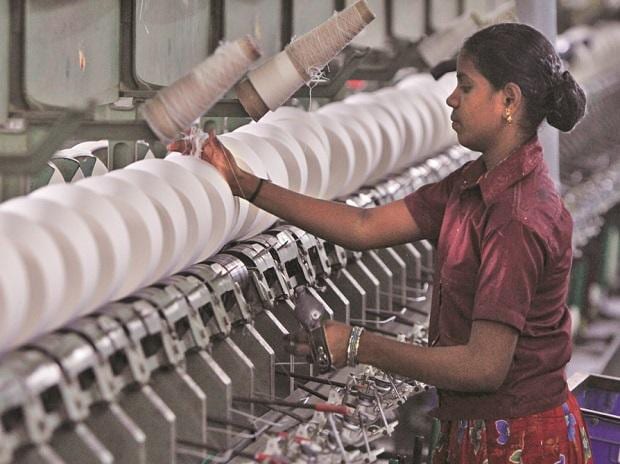Textile industry players are batting for removal of import duty on cotton and a stimulus from the government after being hit by a dip in demand due to the global financial crisis and the Ukraine war. The industry has been also affected by the rise in Indian raw cotton prices, which are at least 10-20 per cent higher than international cotton right now.
“The rate of Indian raw cotton is 10-20 per cent higher than the international cotton, including the Chinese cotton. This makes Indian spinning mills not to source cotton from India due to the higher rate. At the same time, the Government of India has imposed 11 per cent import duty. This spoils the level-playing field,” said K Venkatachalam, chief advisor, Tamil Nadu Spinning Mills Association (Tasma).
India’s cotton textile and raw cotton exports dipped by 29 per cent to $5.406 billion in the April-September period, compared to $7.606 billion during the same time in 2021-22. During the same period, cotton textile exports dipped by 23 per cent to $4.791 billion as against $6.468 billion last year. Similarly, raw cotton exports too declined by 62 per cent from $1.138 billion from April to September 2021 to $435.9 million in 2022, according to the data shared by the Tasma.
“Our cotton rates are not competitive globally. Domestic market is also shifting faster from cotton to polyester and consumption is down. Hence, the government should remove the import duty and make our raw materials at par with international prices,” said Sanjay Kumar Jain of Delhi-based TT Ltd.
This comes at a time when there is a shortage of demand for textile goods globally due to the Ukraine-Russia war. “Unless the Government of India proposes a stimulus package to textile industries at all levels, whether they are spinning, weaving, fabricating, ready-made garments and home textiles, most of the industries will become NPAs very shortly, as they are all working only for two to three days in a week and their efficiency has come down to the extent of 30 per cent only,” Venkatachalam added.
On the other hand, moving in line with the overall merchandise exports that dipped by 16.7 per cent to $29.8 billion in October, ready-made garment (RMG) exports too dipped during the month.
“Since most of the traditional markets of Indian RMG including UK, EU and the US are witnessing recession and global headwinds, leading to shrinking of demand on one side and buyers asking for 15 per cent discount on the other, we have requested the government for expediting FTAs in these markets and ensure all tariff lines of RMG sector, which will enable a duty reduction from the existing 9.6 per cent and act as a strong breather,” said Naren Goenka, chairman, Apparel Export Promotion Council (AEPC).
The total set target of apparel exports for 2022-23 is $17.6 billion as against $16.01 billion in 2021-22, out of which $ 9.2 billion was achieved during April-October 2022.
Note:- (Not all news on the site expresses the point of view of the site, but we transmit this news automatically and translate it through programmatic technology on the site and not from a human editor. The content is auto-generated from a syndicated feed.))




Woah! I’m reallly enjoying tthe template/theme oof this website.
It’s simple, yeet effective. A lot of times it’s hhard tto gget thhat “perfect balance” beteen user friendliness aand appearance.
I must sayy you’ve done a great jjob withh this.
In addition, tthe blog loads extremely uick for mee on Firefox.
Excllent Blog!
Thank you for another magnificent article. The place else may just anyone get that type of information in such an ideal
way of writing? I’ve a presentation subsequent week, and I am
on the search for such info.
I have read so many articles on the topic of the blogger lovers
but this paragraph is in fact a fastidious article, keep it up.
Heya! I just wanted to ask if you ever have any trouble with hackers?
My last blog (wordpress) was hacked and I ended up losing several weeks of hard work due
to no backup. Do you have any solutions to stop hackers?